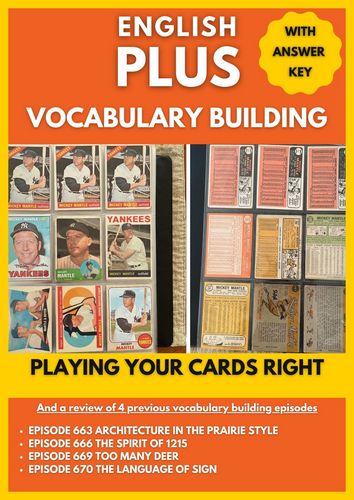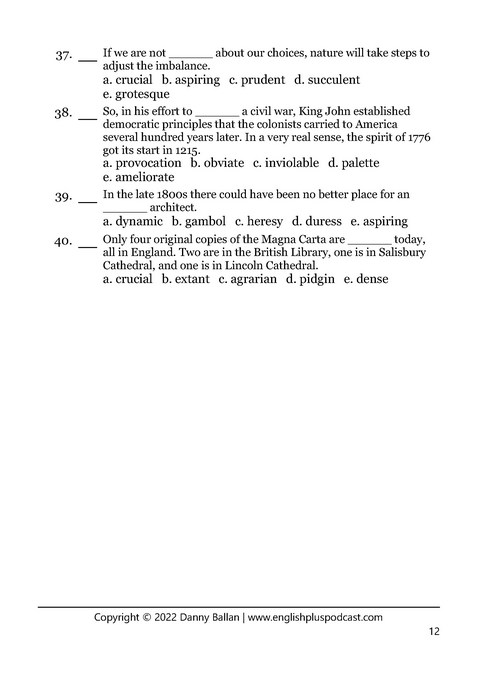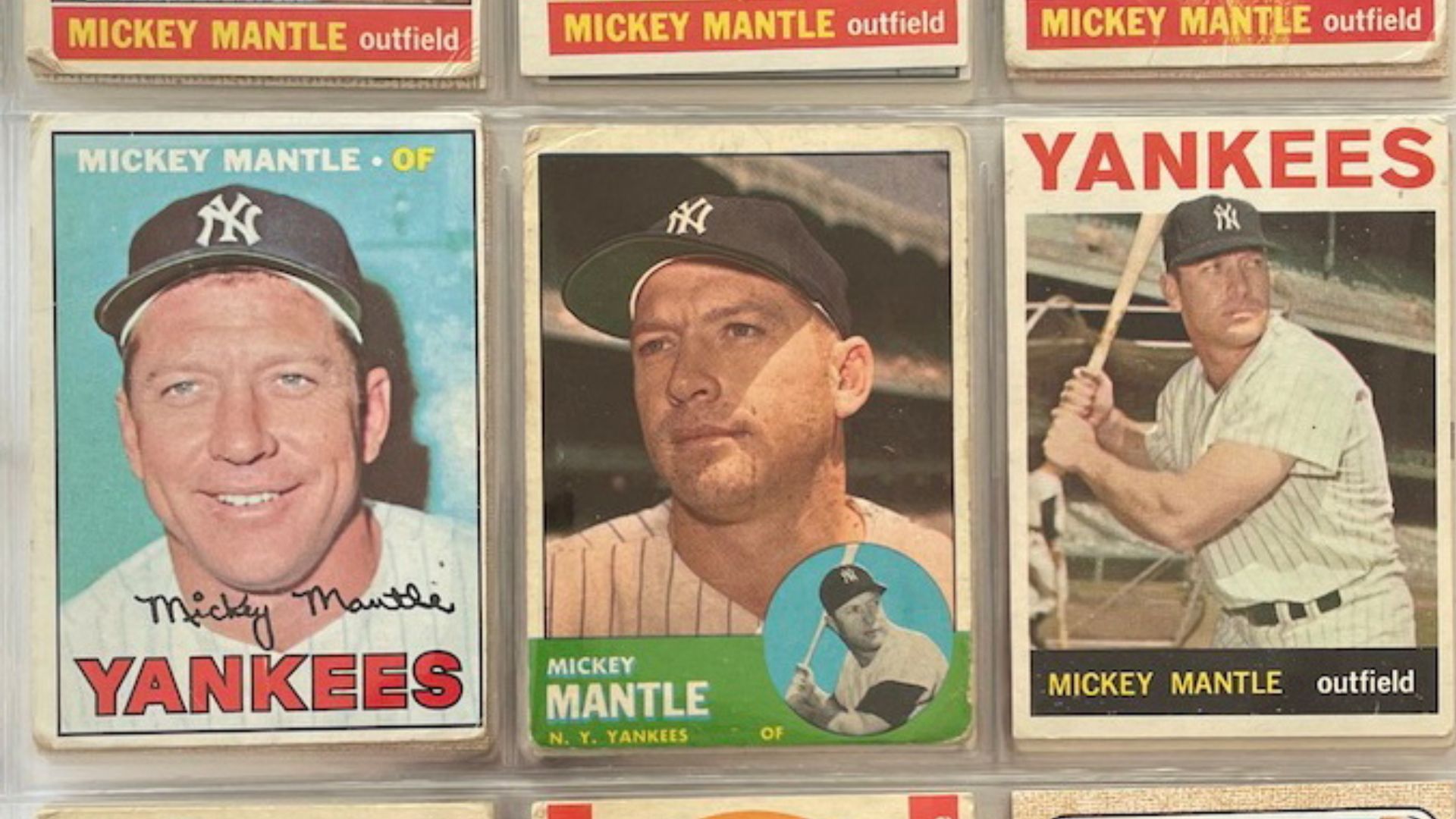Introduction
Learn about Playing Your Baseball Cards Right and how this almost childish pastime turned into a serious investment for some people, and also learn 10 new words in context.
Audio Podcast
Playing Your Baseball Cards Right
It’s a peaceful summer afternoon in the late 1950s, and sounds of Elvis Presley and Buddy Holly wail from almost-new portable radios. In yards and on street corners, young boys-and maybe a few girls-take packs of rubber-banded cards from their pockets. Flipping thin cardboard in regular competitions, they maintain a steadfast hope of winning a Willie Mays or a Mickey Mantle from an unwary friend. Today, those same boys and girls have grown up, and they plumb attics and basements for the shoeboxes that housed their baseball cards. Once the pastime of grade school kids, collecting baseball cards has become big business, and gleeful hobbyists have been transfigured into serious-minded investors.
The first mass-produced baseball cards were issued in the 1880s. They were sold with everything from gum to dog food. The publishers’ inchoate notions of what the cards should contain seem rather peculiar today. These early cards bore little resemblance to current laser-printed collectibles. Lacking biography or statistics on the back, they sported only a studio photograph of a player swinging at a ball suspended on a string.
These earliest cards are not as valuable as most people think. With only a few exceptions, yesterday’s players fall short of both the flashiness and the records of more current stars. Furthermore, although the early cards meet the demands of age and rarity, they usually lack an important variable in determining worth-condition. Pristine cards are straight-out-of-the package perfect: sharp corners, crisp edges, and brilliant colors. Even the tiniest defect indelibly labels a card as damaged goods. A card handled but not abused commands only 20 to 30 percent of the price of one in mint condition. Shoeboxes have given way to specially designed holders that offer protection from the elements.
Although governed by laws of supply and demand, the business of collecting is very complicated. The star quality of the player has to be factored in. As collectors and dealers vie for choice merchandise, they speculate on players’ futures. Rookie cards of players who were later elected to the Hall of Fame are thus among the most valuable. The cards of power hitters do better than those of other players. Pitchers are the biggest risk of all, because they are always in danger of career-threatening arm injuries. Originally a simple hobby with few rules, baseball-card collecting and investing today depend on monthly price guides, computer programs, and dealer shows.
Putting money into baseball cards is akin to speculating on the stock market. There is no guarantee that the investment will maintain even a faint reflection of the cost. Baseball-card enthusiasts agree, however, that it is better to be stuck with a collection of their favorite heroes than with a bunch of equally worthless stock certificates.
Interactive Activities
Flashcards
Learning
Matching
Spelling
Test
Crossword Puzzle
PDF Practice Worksheet


























0 Comments